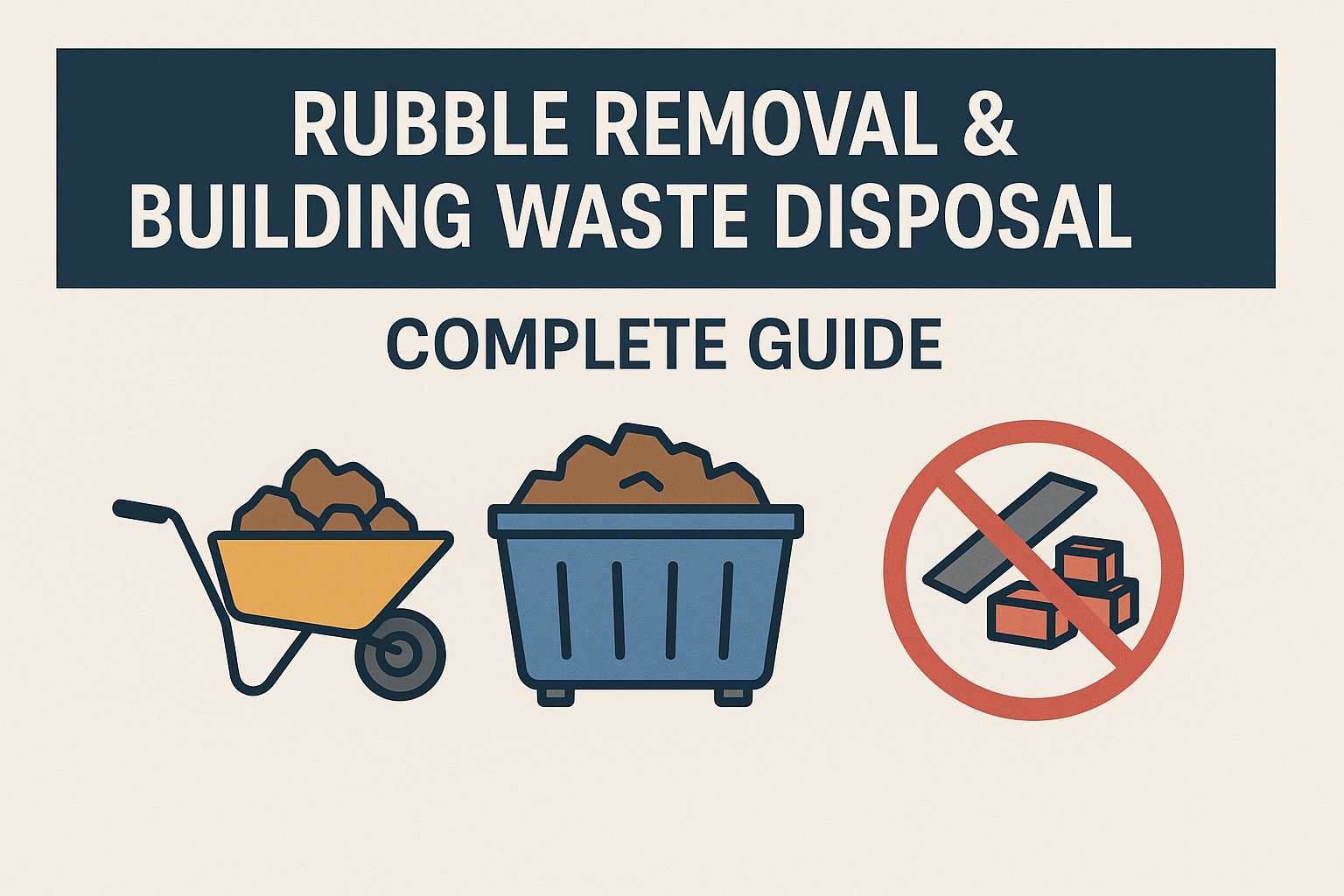
Rubble Removal & Building Waste Disposal: Complete Guide
All building projects leave a trail of debris all over the construction sites. The remnants of materials such as concrete fragments, twisted metals, damaged timber, and numerous other material fragments pile up rapidly on construction sites. It creates a lot of pressure on contractors and property developers to dispose of these materials in the right way and adhere to the strict environmental regulations. It is because improper waste management may stop the work, increase costs, and create serious safety hazards. This is where professional rubble removal services are required to keep the project moving without any hassle.
Here is a guide to know all about building waste disposal.
Understanding your waste materials
Building waste is a mixture of various materials that vary in composition and disposal requirements. There are inert materials like concrete blocks, broken bricks, stone, and tiles that create the base of most waste streams, which can be recycled into aggregate for new construction projects. Whereas timber offcuts, metal fixtures, and plastic components each have their own different recycling methods.
Building waste collection becomes more complex with mixed materials, making early segregation important for cost control. Hazardous substances like asbestos tiles or lead-based paints require certified disposal methods with strict documentation.
So, smart categorisation includes:
- Heavy inert waste such as concrete, bricks, stone
- Recyclable materials such as metal, clean timber, and plastics
- Hazardous waste requiring specialist handling
- General mixed debris and packaging materials
Choosing professional collection methods
The right collection approach depends entirely on your project scale and timeline. Skip hire works brilliantly for smaller renovations where materials accumulate gradually over weeks. However, grab lorries excel at immediate clearance, particularly after demolition phases when you need to remove large volumes quickly.
Builders waste disposal services offer scheduling flexibility that keeps your workforce productive. Same-day collections prevent site congestion while scheduled pickups suit longer construction phases. Licensed carriers provide proper documentation and ensure materials reach appropriate facilities.
So, the collection advantages include:
- Flexible scheduling around the project
- Professional segregation and processing expertise
- Compliance documentation and audit trails
- Access to recycling networks and specialist facilities
Managing costs and maximising value
The cost of construction waste disposal depends mainly on material types and contamination levels. Clean concrete and masonry quote lower disposal rates than mixed waste streams, whereas contaminated loads face penalty charges that quickly escalate project costs.
Planning disposal during design phases also helps in accurate budgeting and creates reuse opportunities within your project. Removal of building waste through established trade generally gives better rates than residential collections, and bulk arrangements provide economies of scale for larger developments.
Digger hire services work best for waste removal by providing better material handling and precise site preparation. This integrated approach minimises double-handling and reduces overall project costs while maintaining site organisation.
Site safety and health considerations
Visit any construction site, and you will find the same: workers walking over pieces of broken concrete, pushing their way through piles of timber and walking around metal off-cuts. This may appear normal, but it is posing an accident risk daily. One twisted ankle in the uneven debris will stop all your crew. In simple terms, messy sites are prone to accidents. It is not only about keeping your people safe and running your project, but also about how to get rid of rubble.
With professional building waste removal, there are fewer insurance claims, a happier workforce, and clients who see you as an organised person and not a disorganised mess.
Conclusion
Handling construction debris is not just about clearing materials at the site. Rubble removal is also a strategy that makes a difference in the success of your project in many ways. The right method of building waste disposal balances between regulatory compliance and cost-effectiveness, turning what appears to be an overhead cost into a value-adding service. It is where professional partnerships give access to special recycling networks and processing facilities. Choose GW Grab Services for quality disposal solutions that offer all-inclusive solutions that keep your reputation safe and help you grow your business in the long term.

